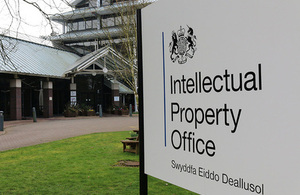It includes details on the UK fleet, the number of fishermen, the quantity and value of UK landings, international trade, worldwide fishing and the state of key stocks.
The report highlights that in 2017:
- The quantity and value of sea fish (which include shellfish) landed by UK vessels have increased by 3 per cent and 4 per cent respectively on 2016.
- UK vessels landed 724 thousand tonnes of sea fish into the UK and abroad with a value of £980 million.
- UK fleet landings abroad rose to 290 thousand tonnes compared with 256 thousand tonnes in 2016, almost entirely down to increases in blue whiting and mackerel
- Mackerel accounted for 227 thousand tonnes, 31 per cent of UK fleet landings.
- The Scottish and Northern Irish fleets caught mainly pelagic fish. The English landed mainly demersal species and the Welsh caught mostly shellfish.
- The UK fishing fleet remained seventh largest in the EU in terms of vessel numbers, with the second largest capacity and fourth largest engine power.
- Seventy four per cent of the quantity landed by the UK fleet was caught by vessels over 24 metres in length which accounted for 4 per cent of the total number of UK vessels. These vessels tend to catch lower value pelagic fish.
- Around 11,700 fishermen were active in the UK. Approximately 2,000 were part-time.
- Scottish vessels accounted for 64 per cent of the quantity of landings by the UK fleet while English vessels accounted for 28 per cent.
- Peterhead was the port with the highest UK fleet landings – 151 thousand tonnes with a value of £167 million.
- Brixham had the highest quantity and value of UK fleet landings in England – 15 thousand tonnes (of mainly high value shellfish) with a value of £41 million, £10 million higher than in 2016.
- Imports of fish were down 3 per cent to 705 thousand tonnes. Exports rose by 5 per cent to 460 thousand tonnes.
- World figures for 2016 showed that China caught the largest amount of fish, 15.4 million tonnes. Indonesia had the second largest catch at 6.1 million tonnes.
The full report, and more detailed supplementary tables, can be on the UK sea fisheries annual statistics report 2017 webpage.
Economic Exclusive Zone (EEZ)
In addition to the annual report there is an annex report with a further breakdown of landings by Economic Exclusive Zone (EEZ). As a new addition we have examined all major quota stocks caught in UK waters and examined how much of the total landings for that stock came from UK waters.
For example this report shows that:
- UK vessels landed 80% of their tonnage from UK waters (83% by value). A further 13% by tonnage was sourced from non-UK EU Member State’s waters (9% by value).
- We estimate that 99.9 per cent of West Coast Nephrops, worth £35 million, was taken from UK waters.
This annex is an experimental statistics and we are actively seeking end users’ views on the usefulness and quality of this work. If you have any thoughts on what can be better, what you’d like to see more of or what isn’t relevant please do take the time to fill in the short survey in the document. In addition to the report we have also released detailed underlying data sets of UK landings by EEZ.
For more information, please read our blog.
Notes to editors:
The Marine Management Organisation (MMO) regulates the seas around England, including the management of fisheries.
The MMO has the difficult balancing task of ensuring that stocks are managed throughout the year to maximise fishing opportunities for the UK industry, while ensuring that stocks are not overfished and the UK government and taxpayer does not have to pay steep penalties.
We are continually working with the fishing industry to improve day-to-day management with accurate catch limits and forecasts that secure longer fisheries, while safeguarding the welfare of fish stocks.
